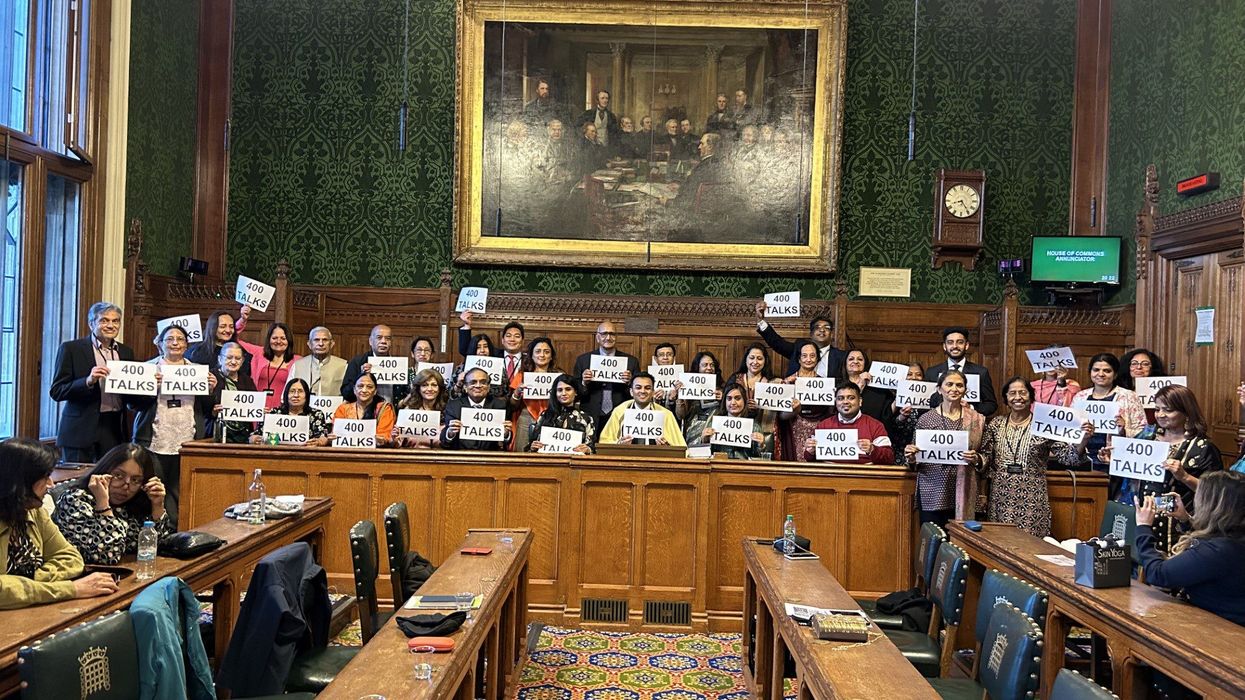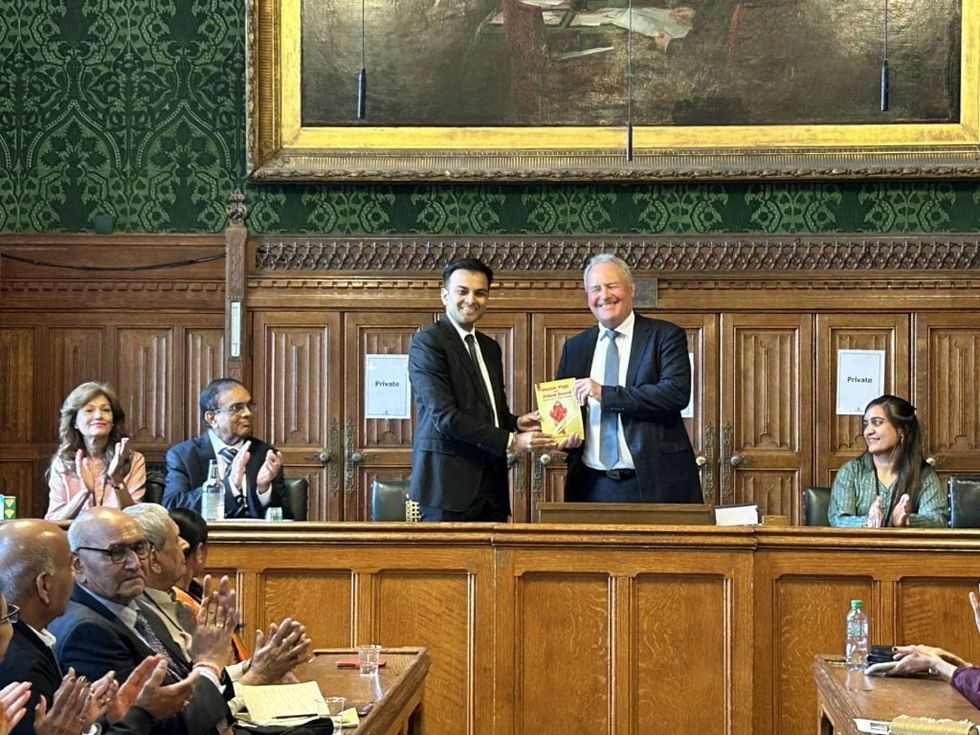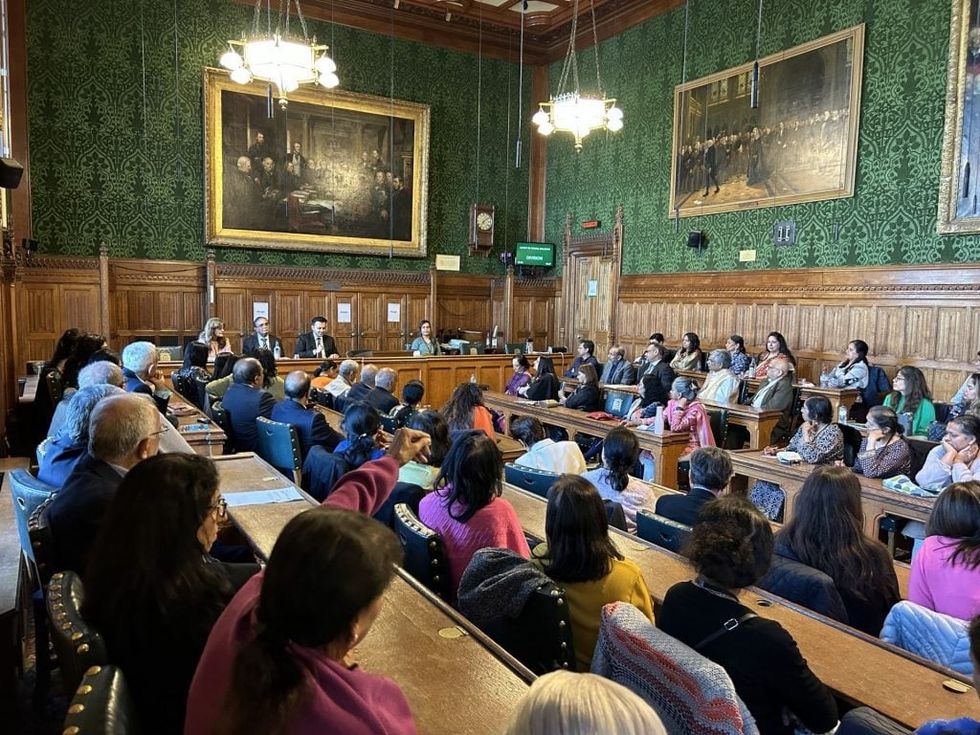The UK Parliament recently celebrated the momentous milestone of Dhruv Chhatralia BEM delivering his 400th public talk on the Hanuman Chalisa on 23 May 2023.
The event took place at the House of Commons and was attended by esteemed individuals such as Padma Shri Bob Blackman MP, Sir Graham Brady (Chairperson of the 1922 committee), and representatives from various Indian organizations and religious backgrounds.
Chhatralia's talk focused on the theme of "The Secrets of Success in Career Management according to the Hanuman Chalisa," captivating the audience with his insights and commentary on the ancient scripture, a press release said.
The event, hosted by Padma Shri Bob Blackman MP, drew over 170 attendees, with an additional 200 people on the waiting list.
Throughout the evening, notable speakers including Lord Gadhia, Baroness Verma, and Riddhi Vyas shared their perspectives on Indian spirituality, culture, and the significance of deities.
Chhatralia received recognition and presented copies of significant books to individuals who had made significant contributions.
The event also commemorated the fifth anniversary of the passing of Pujyashree Amarsihn Jetthwa, a revered Yogi and devotee of Ambe Maa.
Attendees paid tribute to his legacy and engaged in chanting siddha mantras dedicated to Hindu deities.
Riddhi Vyas, Lakshmi Kaul, and Vishal Jobanputra delivered insightful talks on Devi Puja, the symbolism of various goddesses, and the process of Shakti Puja.
Lord Gadhia concluded the event by emphasising the importance of preserving ancient cultural and spiritual values in contemporary society.
The occasion marked the successful completion of numerous talks on Hindu deities over 12 years, by the organization SHYAM.
The event also represented the first-ever recital of the Devi Mahatmaya at the British Parliament, signifying a significant milestone in spiritual discourse.






